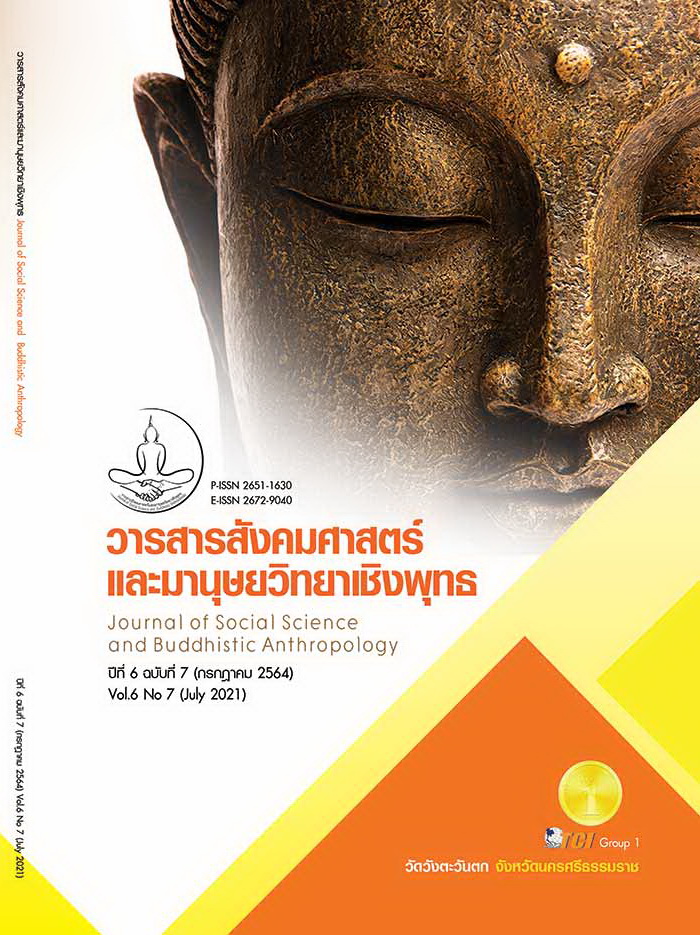SOCCER AGENTS’ PERSONAL PERFORMANCE MARKETING
Keywords:
Football, Capability, Marketing, Work Processes, Football AgentAbstract
The objective of this article was to study the football agents' work processes and capabilities. Data were collected using in-depth interviews with 8 stakeholders, group discussions with 15 stakeholders, the Delphi technique, and qualitative research. The Delphi technique and qualitative research collected data from experts with knowledge or experience on the traits and a football agent's market services. There were 2 groups of experts. The first group had 3 academic experts, while the second group had 40 stakeholders. Results revealed that football agents' work processes should follow morality and ethics. Football agents' credibility, fame, and relationship network are especially important factors that attract football athletes to decide on an agent. Each organization or company have their selection process for football athletes depending on the organization or company policies. It is important to understand market needs and consider customers' needs. A football agent's capabilities are categorized into four groups, which are: knowledge, skills, desirable capabilities or behaviors, and other traits. A football agent needs to have all these traits to support a football athlete to have a high income and standard of living. The needs for all of these ranged from high to highest. The study also revealed a work process and capabilities that are needed for a football agent and required to support a football athlete to have a high income and standard of living. All these are necessary to drive the football market industry and to continuously develop football agents.
References
กระทรวงการท่องเที่ยวและกีฬา. (2561). การขับเคลื่อนการดำเนินงานกิจการและกิจกรรมด้านการกีฬา (การประชุมคณะกรรมการนโยบายการกีฬาแห่งชาติ ครั้งที่ 2/2561). เรียกใช้เมื่อ 2 พฤศจิกายน 2561 จาก https://mots.go.th/ewt_news.php?nid=
&filename=index
นักกีฬาฟุตบอลคนที่ 2. (2 มีนาคม 2562). กระบวนการการทำงานของเอเย่นต์นักกีฬาฟุตบอลในประเทศไทย. (นธายุ วันทยะกุล, ผู้สัมภาษณ์)
วรรณชลี โนริยา. (2554). รูปแบบของเอเย่นต์นักกีฬาฟุตบอลอาชีพในประเทศไทย. กรุงเทพมหานคร: มหาวิทยาลัยเกษตรศาสตร์.
ศูนย์วิจัยกสิกรไทย. (2562). ความนิยมในกีฬาฟุตบอลของไทย: กับบทบาทในกิจกรรมเศรษฐกิจของประเทศ. กรุงเทพมหานคร: ฐานเศรษฐกิจ.
เอเย่นต์ของนักกีฬาฟุตบอล 1. (9 มีนาคม 2562). กระบวนการการทำงานของเอเย่นต์นักกีฬาฟุตบอลในประเทศไทย . (นธายุ วันทยะกุล, ผู้สัมภาษณ์)
เอเย่นต์ของนักกีฬาฟุตบอล 2. (12 มีนาคม 2562). กระบวนการการทำงานของเอเย่นต์นักกีฬาฟุตบอลในประเทศไทย. (นธายุ วันทยะกุล, ผู้สัมภาษณ์)
เอเย่นต์ของนักกีฬาฟุตบอล 4. (16 มีนาคม 2562). กระบวนการการทำงานของเอเย่นต์นักกีฬาฟุตบอลในประเทศไทย. (นธายุ วันทยะกุล, ผู้สัมภาษณ์)
เอเย่นต์ของนักกีฬาฟุตบอล 5. (12 มีนาคม 2562 ). กระบวนการการทำงานของเอเย่นต์นักกีฬาฟุตบอลในประเทศไทย. (นธายุ วันทยะกุล, ผู้สัมภาษณ์)
Bass, B. M. (1990). Bass and Stogdill handbook of leadership: Theory, research, and managerial application (3rd ed.). New York: Free Press.
Covell, D. S. et al. (2007). Managing Sports Organization: Responsibility for Performance. (2nd ed.). Burlington: Elsevier Inc.
Epstein, A. (2003). Sports Law. New York: Thomson Press.
Grimsley, G. & Jarrett, H. F. (1975). The Relation of Past Managerial Achievement to Test Measures Obtained in the Employment Situation: Methodology and Results-II. Personnel Psychology, 28(2), 215-231.
Masteralexis, L. C. A. et al. (2008). Principle and Practice of Sport Management. (3rd ed.). Canada: Jones and Bartlett Publishers.
Stogdill, R. M. (1948). Handbook of leadership: A survey of theory and research. New York: Free Press.
Williams, P. (2005). One athete’s strategy. Street & Smith’s Business Journal, 31(October), 17-23.









